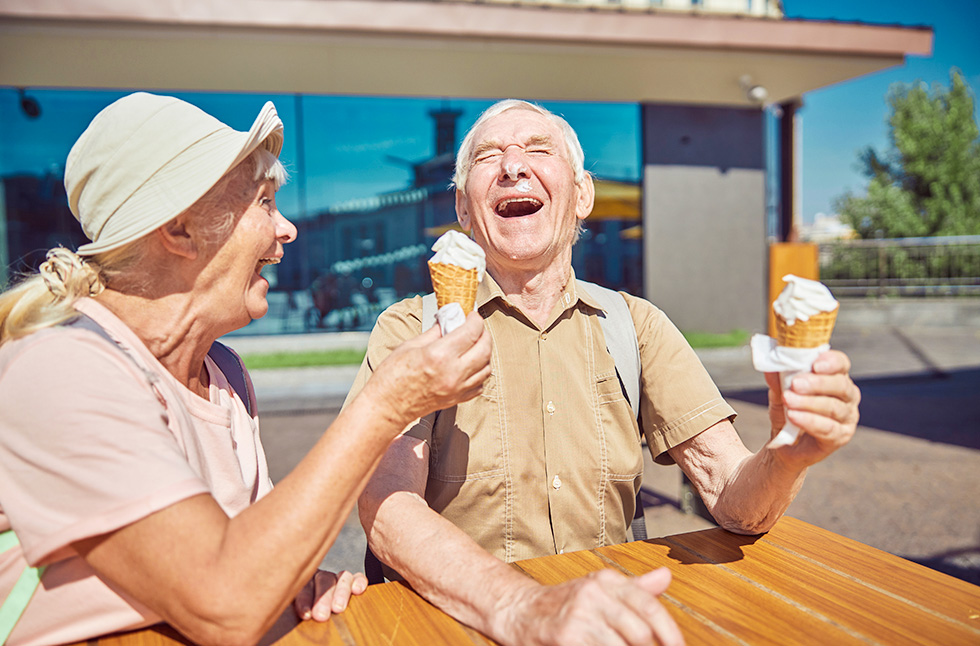It’s no secret that summer heat is not for everyone. Seniors are more susceptible to heat-related illnesses and injury, according to the Centers for Disease Control and Prevention (CDC).
Our bodies become less efficient at regulating temperature as we age because older adults do not sweat as much as younger adults.
Sweat is the body’s most important heat-regulating mechanism. Older adults also store fat differently, which can further complicate heat regulation. This can cause issues in the summer because when the outside temperature rises, so does the body’s internal temperature. Which is why seniors suffer from heat stroke in the summer more often than younger people.
Here some tips for staying cool this summer regardless of what climate you are in.
- Stay hydrated: Drink eight or more glasses of water and/or fruit juices every day. Avoid alcoholic and caffeinated beverages like soda, coffee and tea as they can leave you dehydrated quickly. Increase your intake if you are doing any physical activity or if the weather is particularly hot.
- Stay indoors during extreme heat: In extreme heat and high humidity, evaporation slows down and the body must work extra hard to maintain a normal temperature. The sun is the most intense between 10 a.m. and 4 p.m. If you can, limit your outdoor activity to the morning and evening.
- Stay in an air-conditioned place: Air-conditioning is important when it is hot and humid outside. If you do not have air-conditioning in your home, go somewhere that does. A movie theater, the mall, a friend or family member’s home or a community senior center are good options.
- Dress appropriately for the weather: The best clothing to wear in the summer is loose-fitting and lightweight clothes in natural, breathable fabrics like cotton. Dress in light colors that will reflect the sun and heat instead of darker colors that will attract them.
- Protect your skin and eyes: Wearing sunglasses can block your eyes from harmful UV rays and protect your vision. When outdoors, protect your skin from damage by wearing hats, sunglasses and a sunscreen of SPF 30 or higher and that protects against both UVA and UVB radiation.
- Know the side effects of your prescriptions: Some medications can cause increased sensitivity to the sun. Look over your medications and talk with your doctor about any concerns or questions you have.
- Know the early signs of heat-related illnesses: Signs to look for may include disorientation, dry skin, excessive tiredness, headache, lethargy, nausea, a flushed face, high body temperature, rapid pulse, dizziness and confusion. Take immediate action if you feel any symptoms coming on.
- Maintain communication with friends, family, caregivers and emergency contacts: Prepare a list of emergency phone numbers and place them in an easy-to-access area in case needed.
Evenglow Senior Living is here to provide content and resources to help you stay safe and prepared for the summer season. Visit https://evenglow.org/ for more information or call 815-844-6131.

